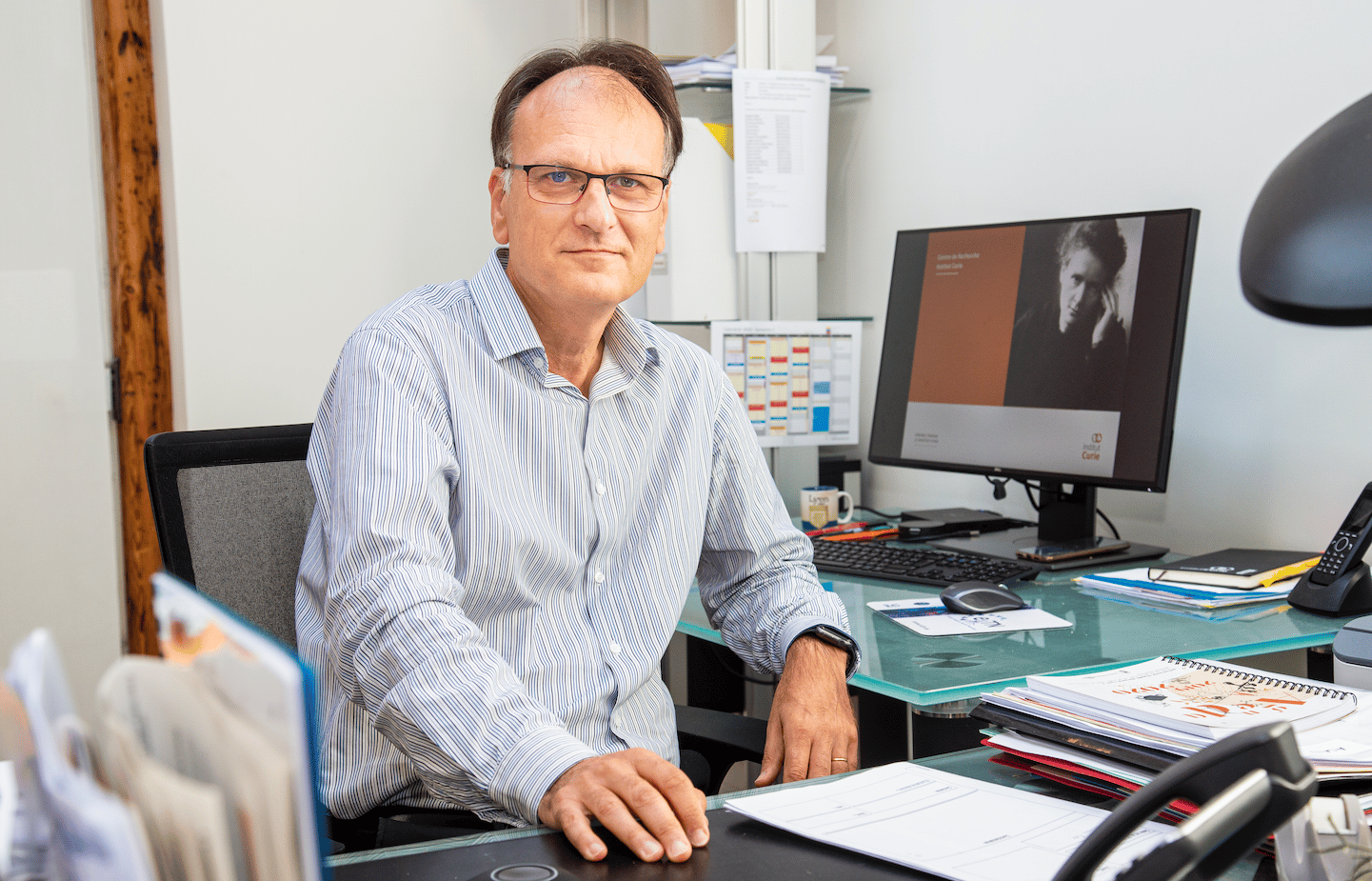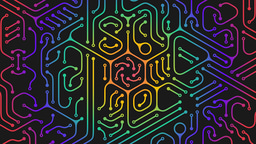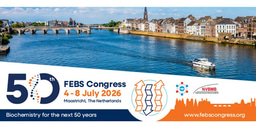Visions: Alain Puisieux, Director of the Research Center of Institut Curie, Paris, France


Institut Curie, a centenary of great modernity
1, Pierre and Marie Curie Street, Paris is home to the historic walls of the Radium Institute built in 1909 by Sorbonne University and Institut Pasteur. Here, amidst the turmoil of World War One, Marie Curie was to set up her chemistry laboratory and direct pioneering research work in physics and chemistry spanning the last 20 years of her life. Co-laureate of the 1903 Nobel Prize in Physics with her husband Pierre Curie and Henri Becquerel for their work on radioactivity, and laureate of the 1911 Nobel Prize in Chemistry for her discovery of the elements polonium and radium, Marie Curie was the first woman to win a Nobel Prize, the first and only woman to win the Nobel Prize twice, the only person to win the Nobel Prize in two scientific fields… and one of four Nobel laureates in her distinguished family. Standing opposite the Curie Laboratory was the Pasteur Laboratory, the second arm of the Radium Institute. Directed by Claudius Regaud, pioneer in radiotherapy, the Pasteur Laboratory was dedicated to studying the biological and medical effects of radioactivity. Marie Curie and Claudius Regaud’s unique, at the time novel, expertise merged through their vision to foster a research–care continuum at the Radium Institute to provide innovative diagnostics and therapeutics for cancer patients. The Curie Foundation was created in 1921, just over a century ago, to support this vision through the generosity of the public. It has remained the driving force behind the development of Institut Curie (once the Radium Institute) and has forged the institute’s spirit.
Consistent with its historical roots, Institut Curie is now composed of a Research Center with a fine balance between basic research and cancer research, and a Hospital Group dedicated to the care of cancer patients. As such, it fulfills three main missions: research; care; and saving and sharing knowledge. The Research Center is home to 13 Research Units operating jointly with universities and other national scientific bodies, and hosts 86 research teams, a Translational Research Department bridging the Research Center and the Hospital, and 18 state-of-the-art technological platforms, together representing a giant melting pot for scientists and collaborators coming from over 70 different countries. At the heart of the Research Center is the Curie Museum, where Marie Curie's office and laboratory are carefully preserved and overlook the garden where her flowerbeds are still abloom every spring.
Appointed in September 2019, I joined Institut Curie with the ambition to build on Curie’s spirit to foster an atmosphere of creativity cutting across scientific disciplines. In Marie Curie’s words, “We must not forget that when radium was discovered no one knew that it would prove useful in hospitals. The work was one of pure science...It must be done for itself, for the beauty of science, and then there is always the chance that a scientific discovery may become, like the radium, a benefit for humanity”. Consistent with this notion, I ensure the conditions that allow researchers to work in a context of intellectual freedom that allows for risk-taking and innovation.
Empowering scientists and fostering interdisciplinarity
Institut Curie is committed to meeting critical challenges in life sciences and medicine, with a particular focus in oncology. Research has led to major advances in the management of cancer patients over the past decades, with the identification of molecular anomalies at the origin of malignant transformation resulting in the development of cancer therapies and the emergence of personalized medicine. Understanding the mechanisms underlying the dialogue between cancer cells and immune cells has further led to the development of immunotherapies. But these same research findings have highlighted the biological complexity of tumors through their intra-tumoral genetic heterogeneity, and the importance of cross-talk between cancer cells and normal cells of the microenvironment resulting in epigenetic plasticity of cancer cells. This complexity imposes the pressing need for a collaborative and multi-skilled workforce to address emerging challenges. While research organization and training have developed in recent years on the basis of strong specialization, we now need to strengthen the interfaces between disciplines in order to address biomedical issues and develop appropriate technologies. Transdisciplinary seminars and calls for multidisciplinary projects are some tools that we use to reinforce this culture of exchange, collaboration and interdisciplinarity within our medico-scientific community. Additionally, we support the creation of physical spaces for collaboration through the construction of infrastructures that are adapted for combined experimentation in biology, chemistry, physics and computational biology, as is exemplified in two of our ongoing projects: (i) the establishment of a cutting-edge platform of single-cell analysis and spatial transcriptomics and proteomics for studying space–time dynamics of tumorigenesis, associated with the creation of a chemical biology laboratory for the development of chemical molecules for analytical and therapeutic purposes, and (ii) the implementation of a laboratory focused on the biology and chemistry of nucleic acids to better characterize the mechanisms of control of genome integrity and identify new points of vulnerability of cancer cells.
Living in the age of Open Science, scientific collaboration must also be practiced by our new generation of scientists. Early-stage researchers recruited through our international, interdisciplinary PhD programs belong to this generation that comprehends the need for shared expertise in order to meet the future challenges of medicine. Our academic training programs combine the biological sciences with other disciplines including high-throughput technologies for data generation, analyses and interpretation, thus equipping our future graduates with the technological aptness that is increasingly necessary in the upcoming community of oncologists.
Promoting and disseminating scientific innovations
As an OECI (Organisation of European Cancer Institutes)-accredited Comprehensive Cancer Center since 2018, the research–care continuum on which we are building our strategy would not be possible if not for effective interactions with our clinicians and pathologists. Enabling this coalescence is our Medical Scientific Program, which represents the cord tying the Research Center to the Hospital Group through collaborations, which in particular integrate young doctors and medical students into oncology-oriented research projects and train them as key communicators at the research–care boundary. Moreover, the health crisis we are experiencing today shows that it is the biotech companies emerging from academic research that provide the most innovative solutions. In a country that stands modestly at 7th position among European countries in terms of turnover generated by biotechnologies in health, we recently instilled an ambitious strategy to promote tech-transfer and develop partnerships with innovative health companies. Our implementation of an internalized program covering the key stages of the structuring of the future company, from detection to creation and follow-up, has led to 11 start-ups in the last 5 years and 30 projects in maturation.
Institut Curie’s Research Center hails from a line of exceptional pioneers and a culture of scientific excellence, freedom of research and interdisciplinarity. It is on these pillars that we are building the future of our Institute, empowering our scientists with the possibility to engage in interdisciplinary projects with potential for ground-breaking social impact.
Alain Puisieux





Join the FEBS Network today
Joining the FEBS Network’s molecular life sciences community enables you to access special content on the site, present your profile, 'follow' contributors, 'comment' on and 'like' content, post your own content, and set up a tailored email digest for updates.